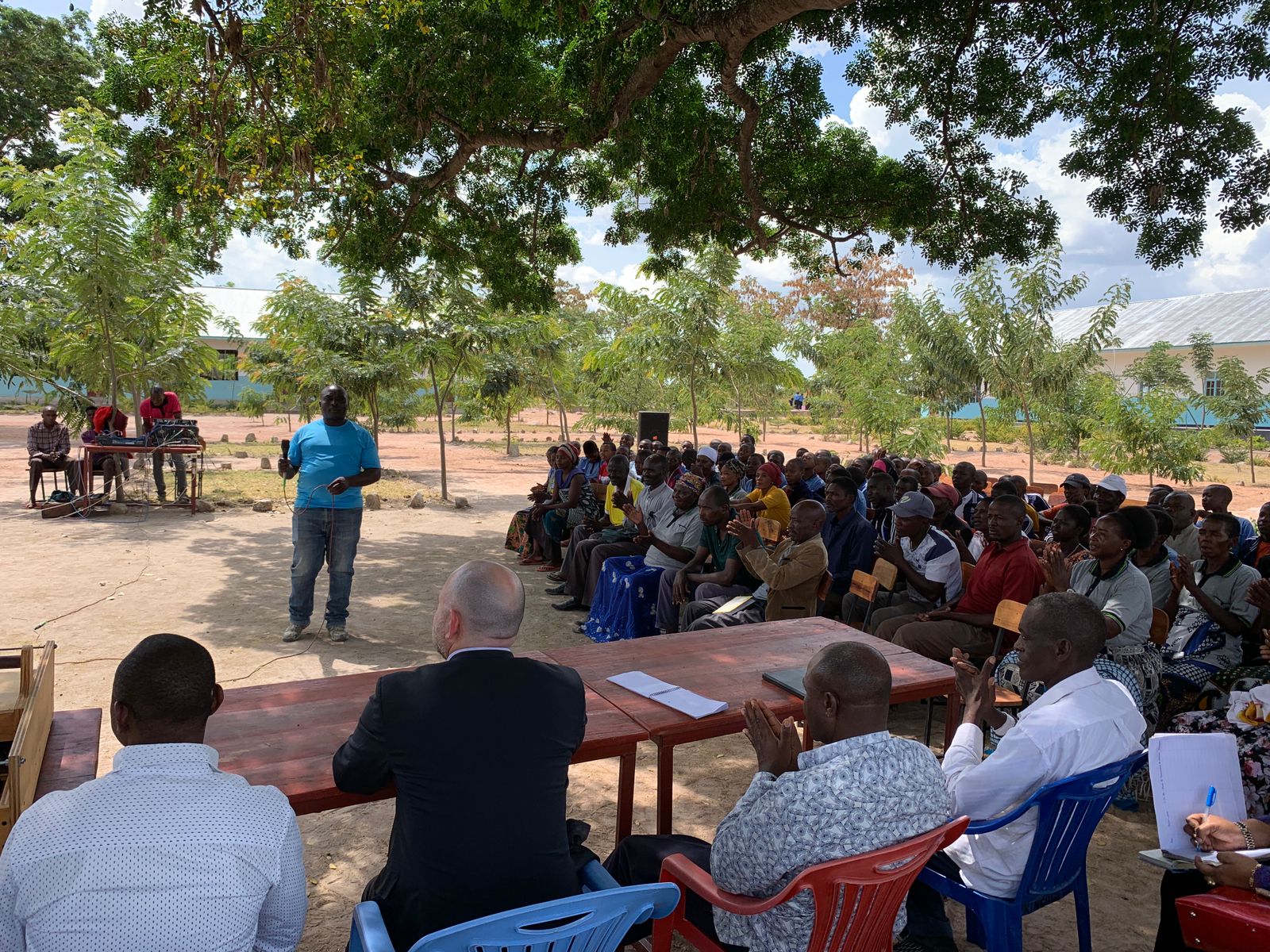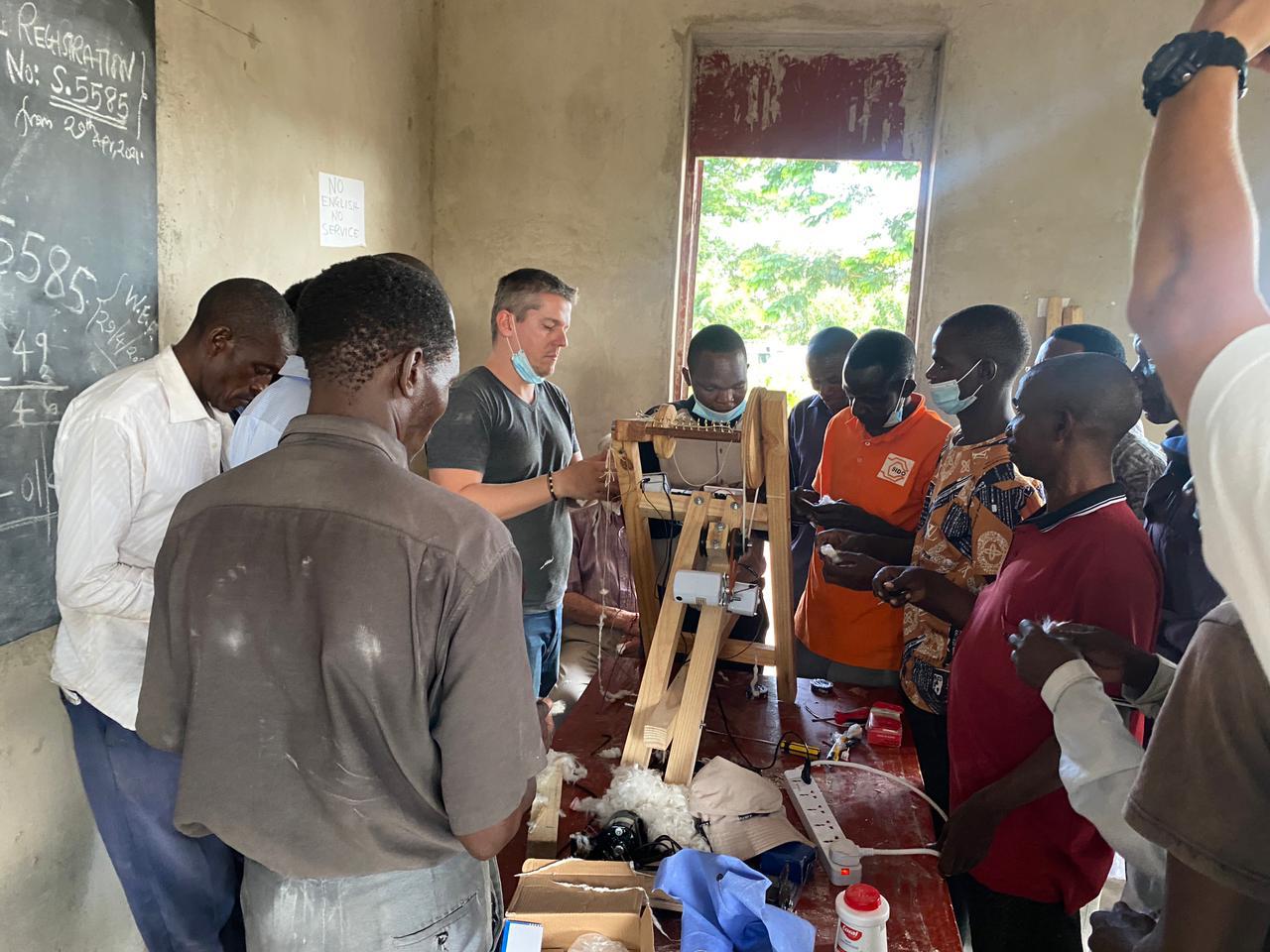
The technical team of the Beyond Cotton Project was on mission in Tanzania between June 9 and 18 alongside the Brazilian government, represented by the Federal University of Campina Grande (UFCG), along with Colombian artisan Carlos Brigard. The mission aimed to support cotton and food producers through the development of workshops on the production and management of cotton and associated food crops, as well as the processing of cotton fiber through the making of handmade looms.
The activities took place in the villages of Misungwi, Kwimba and Magu in Mwanza district and were supported by WFP’s country office in Tanzania, the Ministry of Agriculture (MoA), through the participation of the Tanzania Agricultural Research Institute (TARI) and the Tanzania Cotton Council (TCB).
The work developed by the team included actions to promote sustainable agriculture, development of a unit to add value to cotton, evaluation of the quality of water for human consumption and structuring of spaces for the development of nutrition and food security workshops. Led by Agronomist and professor at UFCG, Dr. Luderlândio Andrade, the post-harvest management and storage workshop sought to develop good practices for the selection of plants and seeds in the field, drying and storage in order to properly conserve seeds for the next harvest, in addition to standardizing the plants in the field, which will facilitate management and cultural treatment.
Also within the scope of good agricultural practices, protocols for experimentation of intercropping and control of fusaria and insects were discussed jointly between UFCG and TARI technicians. They also discussed the structuring of microsprinkler irrigation for the implementation of a cotton seed reproduction field and restructuring of a cold chamber for adequate storage of seeds. Training was also developed for micropropagation of traditional fruit seedlings in the region, through grafting and bubble techniques, to encourage the development of productive backyards with rapid development and, consequently, an increase in fruit consumption by the community.
The mission also had the support of UFCG in the elaboration and construction of models of stoves and ecological refrigerator in schools so that the community can reproduce in their homes. These are structures that have made it possible to improve the ergonomics of people who work in the kitchen, reduce the inhalation of smoke from the burning of firewood through the construction of chimneys and conservation of fresh food for a longer period of time. The ecological stoves will also be used in nutrition and food security activities that will take place under the project.
Dr. Alfredina Santos supported the evaluation of contaminants in water used for human consumption and made recommendations for water treatment and care of the rainwater collection and storage cisterns, built by the community after training in November 2022.

Workshop with Colombian artisan
The Colombian artisan Carlos Brigard, a guest of this mission, offered a 4-days workshop so that local farmers can build machines to add value to cotton, capable of separating the fiber from the cotton seed, opening the fiber and finally the loom. The equipment, made of wood, nails and screws, consists of a low-cost social technology, developed by Carlos Brigard, that can easily be replicated by the local community. The use of the equipment will allow farmers a five-fold gain in the commercialization of the cotton fiber, in addition to allowing the manufacture of clothes for their own use or commercialization, generating income and increasing the autonomy of the benefited farmers.
The mission also included a field visit by the Brazilian Ambassador in Tanzania, Gustavo Martins Nogueira, and the Tanzanian Ambassador in Brazil, Adelardus Kilangi, who observed the development of the project in the field and saw the impacts of Brazilian cooperation in Tanzania, with potential for replication throughout the country.
The Beyond Cotton project is a joint initiative of the World Food Programme (WFP) Centre of Excellence against Hunger in Brazil and the Brazilian Government, through the Brazilian Cooperation Agency (ABC) and the Federal University of Campina Grande (UFCG), with the financial support of the Brazilian Cotton Institute (IBA). On the Tanzanian side, it has the partnership of the Tanzania World Food Programme office and the Ministry of Agriculture (MoA), through the participation of the Tanzania Agricultural Research Institute (TARI), and the Tanzania Cotton Council (TCB).




